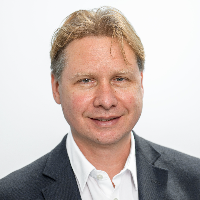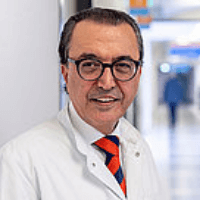Annuloplasty With Carillon Mitral Contour System for Mitral Valve Insufficiency (prolapse) treatment in Germany
Treatment prices are regulated by national law of the corresponding countries, but can also include additional hospital coefficients. In order to receive the individual cost calculation, please send us the request and medical records.

Department of Cardiothoracic Surgery
According to the Focus magazine, the Department of Cardiothoracic Surgery ranks among the top medical facilities in the field of its specialization! The department offers all options of modern surgery for the treatment of diseases of the cardiovascular system and thoracic organs. The department widely uses modern minimally invasive techniques, which are considered the gold standard of surgery. Since its founding in 1976, the department has performed more than 40,000 open heart interventions. The department's surgeons also have vast experience in the field of implantation of the artificial heart and mechanical heart support systems. All operations are carried out in strict accordance with the protocols of professional societies.







Department of Cardiac Surgery
The Department of Cardiac Surgery specializes in a full range of cardiac surgical procedures. The medical facility performs operations for ischemic heart disease, valvular heart disease, arrhythmias, heart failure, aortic aneurysms, and aortic dissections. The department's cardiac surgeons have successful experience implanting mechanical circulatory support systems in patients with heart failure: Impella®, ProtekDuo®, and LVAD devices are implanted here. Of particular interest is minimally invasive surgery, which, in addition to an optimal functional outcome, ensures minimal trauma rate, rapid recovery, and the absence of cosmetic defects. In cooperation with interventional cardiologists, the department's surgeons also perform hybrid heart operations, combining catheter-based and classical surgical techniques. The department has the prestigious DIN EN ISO 9001:2015 certificate, given only to the best clinics with exceptional quality of medical services. The department also has the status of a national Heart Failure Center, certified by the German Cardiac Society (DGK) and the German Society for Thoracic and Cardiovascular Surgery (DGTHG).





Department of Adult and Pediatric Cardiac Surgery
The Department of Adult and Pediatric Cardiac Surgery offers the full range of open and minimally invasive heart and coronary artery surgical procedures. The department mostly performs coronary artery bypass grafting, heart valve repair and replacement, surgery to correct congenital heart defects in adults, interventions to implant left and right ventricular assist devices in the case of advanced types of heart failure, as well as combined interventions. In addition, the department successfully performs extracorporeal membrane oxygenation, which involves the use of an artificial heart and lung to temporarily maintain the patient's life and the functioning of his body when a person's own heart and/or lungs cannot function normally due to the pathological changes. The procedure is performed in both adults and children from 1 year old with severe respiratory failure. Both state-of-the-art medical equipment and long experience of the department's cardiac surgeons enable them to perform most heart operations using minimally invasive techniques, without a thoracotomy and a heart-lung machine. Such an approach guarantees the patient a minimum risk of complications during or after surgery, reduced hospitalization period and speedy recovery after surgery. The treatment success rates demonstrated by the department are registered by the Federal Office of Quality Assurance (BQS). With a low mortality rate and postoperative complications, the medical facility ranks third among Heart Surgery Clinics in Germany.



Mitral insufficiency is a common acquired heart disease that is usually secondary in most patients. This means that the heart valve itself is not damaged, but due to the dilatation of the heart cavity in which it is located, the area of the fibrous ring increases. The heart valve is unable to close it. As the fibrous ring enlarges, a patient has more severe mitral regurgitation, which is the return of blood to the left atrium during ventricular contraction. Without treatment, the pathology leads to heart failure and a deterioration in the patient's health condition.
Treatment consists of heart valve repair with open-heart surgery. In addition, doctors in Germany use an alternative method of treating patients with this condition. This is the Carillon mitral contour system that can reduce the size of the fibrous ring (perform an annuloplasty) using a minimally traumatic technique without violating the integrity of the anterior chest wall and long rehabilitation, and through an incision in the patient's inguinal region. You can have your surgery to implant the Carillon system for your mitral valve regurgitation repair at one of the German hospitals. You are welcome to use the Booking Health service to find out the cost of treatment in Germany and choose a medical care program at the best price.
Content
- What is the Carillon system?
- How is a system for a percutaneous mitral annuloplasty implanted?
- Results of mitral valve insufficiency treatment
- Why to undergo your mitral valve insufficiency treatment in Germany?
What is the Carillon system?
The Carillon mitral annuloplasty device consists of two nitinol self-expanding anchors connected by a nitinol curved segment. This system is designed to reduce the size of the mitral fibrous ring.
Since 2011, the Carillon system has been used for the treatment of patients with mitral valve insufficiency in Germany. Its effectiveness has been proven by the AMADEUS, TITAN, TITAN II, and REDUCE-FMR trials.
The TITAN trial identified the main drawback of the Carillon system, which is the fracture of one of the anchors that occurred in 25% of patients. The device was modified, and already in the TITAN II trial, only 1 case of an anchor fracture was recorded in 36 treated patients with mitral valve insufficiency.
The current version of the Carillon device is a safe system for a percutaneous annuloplasty to treat mitral valve regurgitation. The heart valve repair procedure is minimally traumatic, suitable for patients in the high surgical risk group, and does not require any long rehabilitation. This treatment exceeds the level of effectiveness of drug therapy and provides patients with long-term freedom from repeated mitral valve interventions.
How is a system for a percutaneous mitral annuloplasty implanted?
A percutaneous indirect annuloplasty system is delivered to the mitral valve of the heart through the patient's blood vessels. Chest incisions are not needed because an incision is made in the patient's groin. Under the guidance of angiography (contrast-enhanced X-ray scanning of blood vessels), doctors deliver the device to the heart. It is implanted into the patient's heart through the jugular vein and coronary sinus. The Carillon device is placed on the posterior surface of the mitral valve annulus.
Following the Carillon annuloplasty, the mitral valve annulus narrows and the heart valve closes completely, or at least better than before. The severity of heart disease is reduced. A patient feels improvement almost immediately after the procedure. For 3 months, the patient receives anticoagulant medicines to prevent blood clots.
The mitral annuloplasty for heart valve repair using the Carillon system is:
- safe;
- effective, as proven by several high-quality clinical trials;
- reliable because the results are preserved for a long time;
- even if the procedure is performed by specialists with limited experience, technically simple implantation ensures a low risk of complications due to the human factor;
- general anesthesia is not required;
- no need for rehabilitation;
- a minimum length of a hospital stay;
- the possibility of performing the procedure in patients at high surgical risk who are contraindicated for conventional open-heart surgery.
Results of mitral valve insufficiency treatment
As a result of an indirect annuloplasty using the Carillon system:
- mitral regurgitation (reverse reflux of blood on the mitral valve) becomes less severe;
- symptom relief occurs;
- exercise tolerance increases;
- the quality of life improves;
- remodeling of the left ventricle occurs (it acquires a shape and size similar to normal).
The REDUCE-FMR results identified a key advantage of the Carillon device over another transcatheter mitral valve repair system called MitraClip. It has been used in Germany since 2002. It turned out that the Carillon system provides the best results in reducing the volume of the left ventricle, which is important for improving heart function. It is expected that left ventricular remodeling will lead to a decrease in the progression of heart failure and an increase in the life expectancy of patients.
The authors of the REDUCE-FMR clinical trial also reported that good results in mitral valve repair were achieved despite the fact that most of the procedures were performed by physicians without any experience with the Carillon mitral contour system implantation. Probably, when treated by experienced specialists, even better results can be expected.
Why to undergo your mitral valve insufficiency treatment in Germany?
It is best to seek medical attention at one of the German hospitals if you want to implant the Carillon indirect annuloplasty system. Below are some benefits of treatment in Germany:
- cardiac surgeons in countries with a low level of medicine do not yet use the Carillon annuloplasty, so traveling abroad remains the only option to undergo this procedure;
- German hospitals have extensive experience in the percutaneous treatment of mitral valve insufficiency;
- German hospitals, including Cardiac Surgery Centers, have state-of-the-art equipment, which is one of the reasons for the high efficiency of treatment in Germany;
- the most advanced modifications of the device for indirect Carillon annuloplasty are used;
- complication prevention is carried out;
- comfortable conditions at German hospitals;
- a low cost of treatment in Germany when compared with other countries with advanced medicine.
You are welcome to use the Booking Health service to find out the cost of treatment in Germany, compare prices at different German hospitals, and select a medical care program. When you make your appointment through Booking Health, the cost of treatment in Germany will be lower for you than if you contact a German hospital directly. The prices are reduced due to the absence of high taxes for foreign patients.
The Booking Health specialists will take care of all the arrangements for your treatment in Germany. We will select for you a German hospital whose doctors specialize in transcatheter mitral valve repair and achieve the best results. Our company's employees will contact the hospital, make an appointment for your preferred dates, book airline tickets, and book a room in the hotel closest to the hospital. They will also translate your medical documents, meet you at the airport in Germany, and take you to the hospital by car. After the completion of your treatment in Germany, the Booking Health specialists will organize your return transfer. Within 3 months after the completion of your treatment in Germany, you will be able to receive medical advice. If necessary, we will ensure buying and forwarding medicines to your native country.
Authors:
The article was edited by medical experts, board-certified doctors Dr. Nadezhda Ivanisova and Dr. Vadim Zhiliuk. For the treatment of the conditions referred to in the article, you must consult a doctor; the information in the article is not intended for self-medication!
Sources:
ECR - European Cardiology Review

